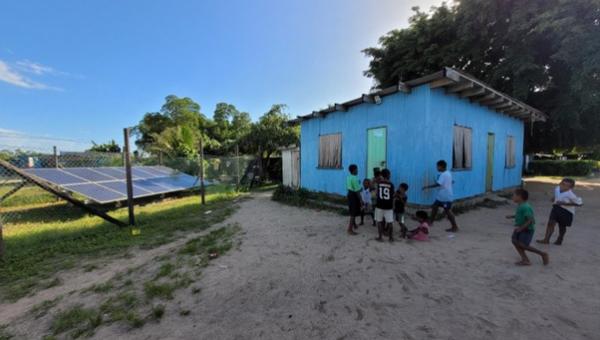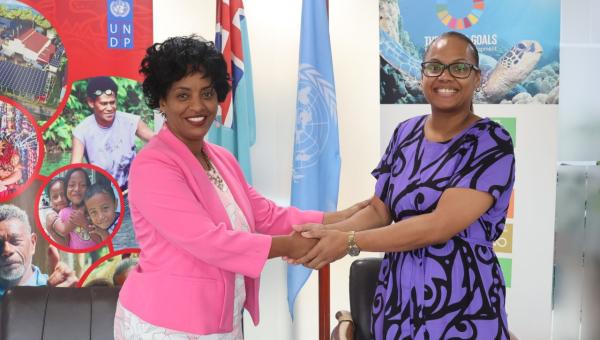RESILENCE AND SUSTAINABLE DEVELOPMENT
Protection and conservation of the environment is becoming increasingly important because of the effects of climate change such as rising sea levels and ocean acidification. Large-scale forest logging, commercial agriculture and associated land clearing, threaten the sustainability of natural resources. Leveraging environment and climate funding help countries step up their activities in climate change adaptation and mitigation and integrating climate change and disaster risk management into national and sectoral planning.
We work with Pacific Island countries to strengthen their legal and institutional frameworks for sustainable development and address gaps in environmental legislation. We help in climate change adaptation and mitigation, conservation of biodiversity, minimizing land degradation, ensuring efficient and equitable water resources management and water supply and sanitation delivery, replicating best practices for solid waste management programmes and increasing efforts towards enabling access to electricity, environmentally sustainable transportation, and cleaner and affordable fuels.

Tuvalu
In Depth
Transformational Adaptation
Regional organizations, governments, the private sector and civil society are key partners, strengthening integrated climate change and disaster risk management to promote resilient, sustainable development, with an emphasis on Sustainable Development Goals 7, 13, 14 and 15, the Sendai Framework, and implementation of the Paris Agreement. Our support addresses the root causes of vulnerability and increase resilience through policy advice and community-level action involving women, youth, and other groups. Vulnerability is addressed by scaling up transformational adaptation initiatives in flood control, coastal zone management, and water and food security, including agriculture and fisheries, with strong community engagement and benefits for women and youth. Resilience is built through diversification of livelihoods and adaptive capacity for the vulnerable populations, including those living on atolls, along the coast and in urban areas.
Supporting the Pacific Voice
Our work in these initiatives is guided by the application of a human rights-based approach and social and environmental norms and standards. We support the Pacific voice in global forums, such as the United Nations Framework Convention on Climate Change, in forming partnerships to address the vulnerabilities of the subregion and inform global policy choices.
Innovative Finances
We provide targeted policy advice and technical assistance at subnational, national and regional levels for mobilizing and managing public and private, domestic and international climate finance. This will include exploring innovative financing options such as micro-insurance and crowdfunding, especially in post-disaster contexts. We support the implementation of nationally determined contributions, including increasing access to affordable, reliable and sustainable energy services, expanding the share of renewable energy, and creating incentives for public and private investment in energy efficiency. Our global mitigation efforts derive the co-benefit of slowing down ocean acidification and improving overall ecosystem health in the Pacific.
Risk-informed Development
In partnership with both the development and humanitarian actors, we are well positioned to address issues surrounding the humanitarian-development nexus. We promote greater continuity and synergies between humanitarian response and mid to longer-term development initiatives to strengthen early recovery, recovery and resilience. We achieve this through risk-informing development, including a cross-cutting risk governance approach, mainstreaming climate and disaster risks within the overall framework of integrating sustainable development goals into subnational and national development strategies and planning processes. These include action at the local level through risk-informed, gender-sensitive development plans and strengthened coordination for their implementation that involves the communities. To prevent loss of life and productive assets, we strengthen disaster preparedness and promote regional collaboration in climate monitoring, early warning systems and use of geospatial technology for actionable risk information.
Private Sector Partnerships
We work with regional and national private sector associations and directly with the private sector to engage strategically and holistically before, during and after emergencies, increasing the scale and effectiveness of business engagement in a coordinated manner. In a disaster context, we continue to provide community infrastructure, essential public services, gender-sensitive early recovery for the restoration of livelihoods, and disaster waste management while strengthening early recovery networks. The recovery support harnesses our resources and capacities across all outcome areas and inform the design of development interventions.
Promote Blue/Green Economies
We contribute to poverty reduction, sustainable livelihoods and climate resilience through integration of the management of land, water, forest, biodiversity and coastal resources. This is achieved through innovative climate-resilient, culturally appropriate ridge-to-reef approaches, such as people-centered design and drone mapping. In keeping with the cross-cutting theme of promoting blue/green economies, we help unlock the economic and social benefits of community-based conservation in protected areas, promote ecotourism, and support access to finance for biodiversity and ecosystems management. We help strengthen the management of coastal biodiversity by promoting sustainable fisheries and livelihoods, focusing on the economic empowerment of women and youth.
Behavioral Change
We build on our past support to scale up sustainable waste management initiatives, focusing on behavioral change towards reducing and recycling waste, and innovative treatment options in small island contexts. We support advocacy campaigns involving communities as agents of change, help countries develop appropriate policy incentives, and promote social entrepreneurship, especially among youth.
Projects

 Locations
Locations




